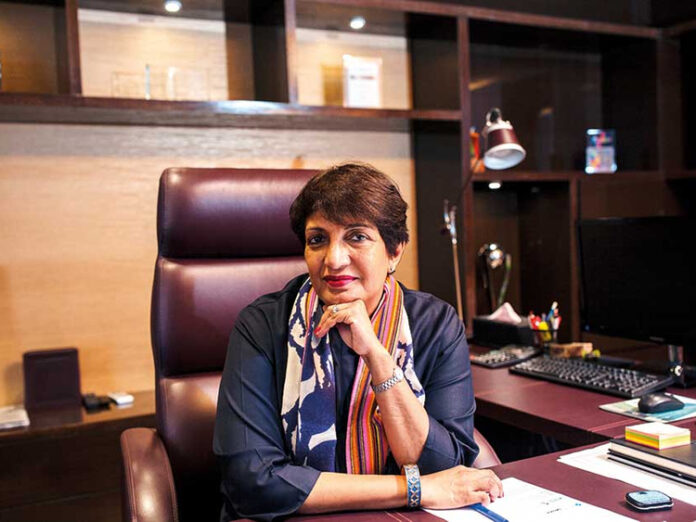ISLAMABAD: State Bank of Pakistan (SBP) Deputy Governor Sima Kamil has said that the financial sector needs to realize its role as a key player in advancing regulatory policy and strategies towards promoting women’s access to finance and digital financial inclusion.
Sharing her perspective in the keynote address at the UN hosted convention ‘The Untapped Potential’ on CSR4 Women on Tuesday, Sima highlighted the need for introducing digital channels for lending by the financial institutions and capacity building of women for effectively accessing these tools.
The event was supported by the government of Norway and chaired by Sima Kamil herself.
Meanwhile, Country Representative of UN Women Sharmeela Rassool in her opening address said that “the nexus of corporate social responsibility and women’s economic empowerment presents four wins- for the private sector, the state, women and for us as UN Women Pakistan.
Through our collaborative efforts, we will achieve the vision of making Pakistan the 10th largest economy by 2047”, she added.
Fareeha Ummar, UN Women Portfolio Manager, in her call for action underscored that private business activity, investment and innovation through social responsibility are major drivers of inclusive economic growth and job creation. She called on the private sector to apply creativity and innovation through a partnership approach ‘towards ensuring income equality, gender equality, equity in access to health, education and social security.’
Evidence shows that Home-Based Workers (HBWs) contribute 1.5 per cent of Pakistan’s GDP, the available data does not include those who are self-employed or contributing family workers.
According to the Labour Force Survey for 2017-2018, out of 5.26 million HBWs in Pakistan, 81pc are women. HBWs are playing an increasingly important role in the economic growth of the country. However, their contribution is undervalued with limited recognition and legal protection.
The convention provided an opportunity to recognize the role of women HBWs, while identifying possibilities for their economic advancement in the CSR space.




